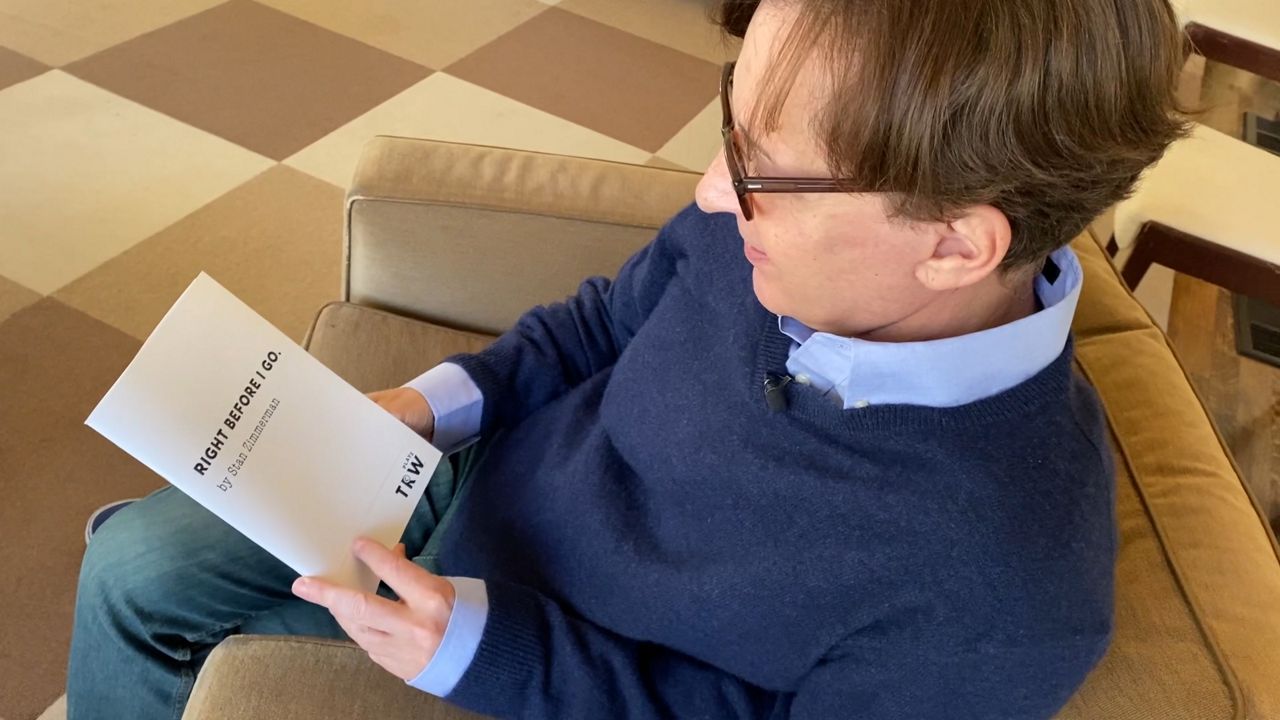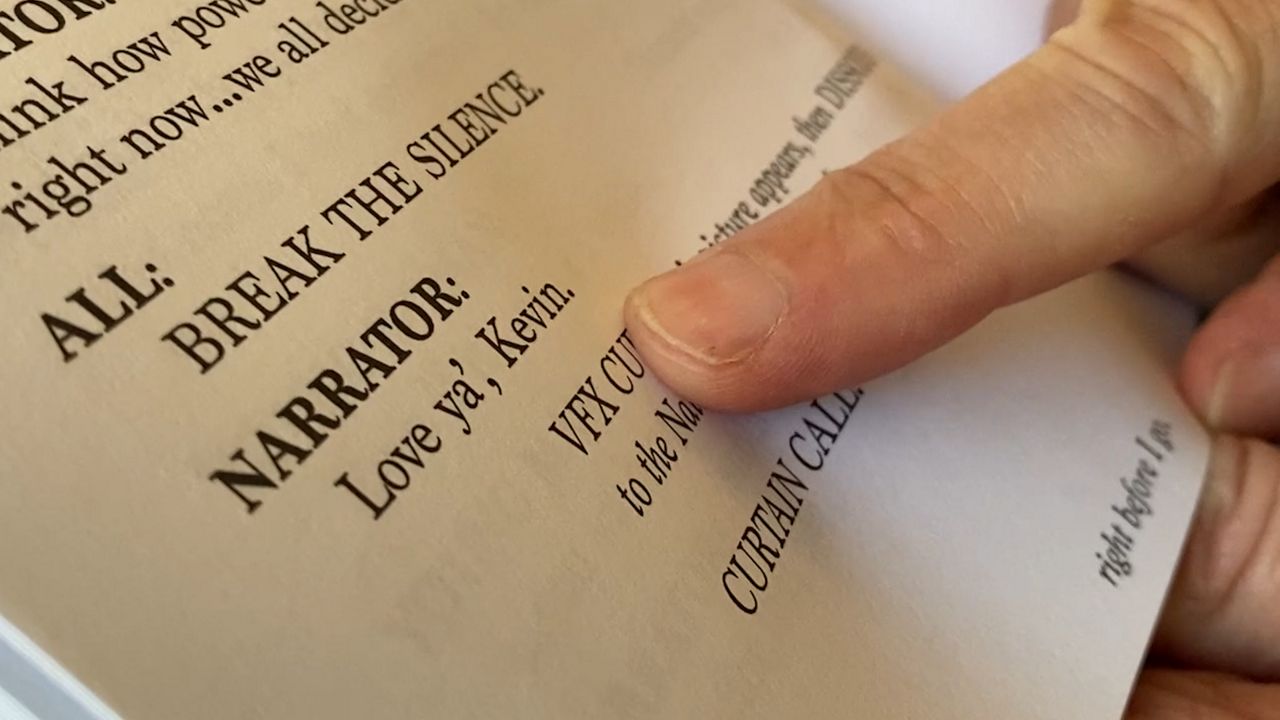LOS ANGELES — “Love ya', Kevin.”
Those are the final words in Stan Zimmerman’s play, “Right Before I Go.” It’s a personal piece and having performed it himself several times, he admits that last line still gets him.
“That’s always hard for me to say,” he said.
Zimmerman has made a career writing for sitcoms like “The Golden Girls,” “Gilmore Girls” and “Roseanne,” but his first published play tackles the very serious subject of suicide. His friend Kevin died by suicide, leaving behind a note that mentioned a handful of friends, including Zimmerman. Trying to make sense of the loss, the writer did what we often do when we need answers.
“I went to my computer and Googled suicide notes,” he remembered. “And all these notes started coming up.”
Veterans, victims of bullying, members of the LGBTQ community, even famous figures like Kurt Cobain — he incorporated these notes, along with Kevin’s, into a play that has since been presented all over the country, often with Zimmerman himself reading the autobiographical role of the narrator.
He remembers the first time he did it for an audience.
“I got to the part where I had to say my friend’s name, and it got stuck,” he said, grasping his throat. “Right here.”
That’s when he says actress Mindy Sterling reached over and held his arm in support. “I felt if I said his name, it would be Niagara Falls with the tears," he said.
Reciting the words continues to be difficult, but Zimmerman feels talking about this often taboo subject is vital, especially for young people who have been struggling with mental health during the pandemic. Suicide is the 10th leading cause of death in the United States and according to the CDC, emergency room visits for suspected suicide attempts among teenage girls increased more than 50% from March 2019 to March 2021.
The play has been read by A-list talent at fundraising events for suicide prevention groups — including Judith Light, Vanessa Williams and Blair Underwood — but the most meaningful experiences for Zimmerman are when he gets to share the stage and his script with high school and college kids.
He was supposed to do a reading at a university this month, but in a social media post, he explained that the school’s director of counseling canceled the production, stating that talking about suicide would incite it. (Zimmerman has chosen not to name the school or the counselor.)

The playwright feels the counselor’s stance goes against where others in the mental health field stand right now regarding the need for dialogue as a method of prevention. “Rather than encouraging suicidal behavior, talking openly can give an individual other options or the time to rethink his/her decision, thereby preventing suicide," according to the World Health Organization.
Yasmin Irfani, youth programs director at NAMI San Fernando Valley, agrees.
“There is not a risk in increase of suicide by talking openly,” she said. “There is a decrease in the risk. There are more benefits to open dialogue.”
Suicide prevention is a subject she is passionate about. Growing up in what she describes as “a culture where it was really taboo to talk about difficult feelings,” she herself struggled with depression and anxiety, often with no one to talk to. She’s encouraged by what she sees as a recent trend toward openness, especially on social media.
“There is a lot more dialogue about these topics, and I think our youth, especially, are really courageous in being some of the mental health advocates,” Irfani said.
To help prepare people to have conversations about suicide, depression or other difficult topics, or to recognize warning signs, her group offers free courses on Mental Health First Aid and Question, Persuade and Refer (QPR) suicide prevention training.
“We have to talk about suicide because one death is too much,” she said.
She hasn’t read Zimmerman’s play, but what she feels firmly about is that any public presentation around suicide should also include a discussion with a mental health professional who can help people process what they witnessed and provide them with resources.
It’s something Zimmerman insists happen after each performance.
“To me, that’s the most important of the play, when we can communicate,” he said. “Because if we don’t break the silence then more people will die like my friend Kevin did.”
He sees “Right Before I Go” as hopeful. By ending the hourlong play with notes from survivors, he wants to remind the audience to live for what’s around the corner and for him, that includes using theater as a vehicle for change.
“I just wanted to spend the rest of my time marrying art and advocacy together,” Zimmerman said.
He describes the play as “a living piece,” meaning other notes can be incorporated into the material. It’s something he hopes he can eventually stop doing.
“I would love for there to be a day where no one is writing suicide notes because there aren’t suicides," he said.
If you need help or know someone who does, please contact the National Suicide Prevention Lifeline at 1-800-273-TALK. You can also chat with them online or contact the Crisis Text Line by texting HOME to 741741.




